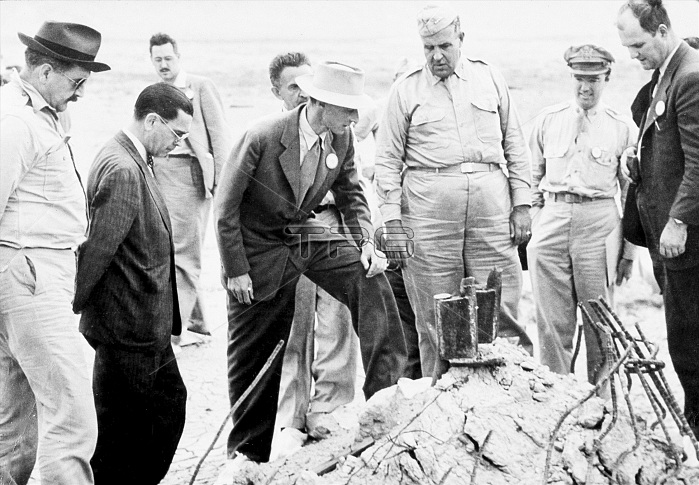
Oppenheimer, selected to head the new laboratory, proved to be an excellent director despite initial concerns about his administrative inexperience, leftist political sympathies, and lack of a Nobel Prize when several scientists he would be directing were prize winners. Groves worked well with Oppenheimer although the two were fundamentally different in temperament. Groves was a practical-minded military man, brusque and goal oriented. His aide, Colonel Nichols, characterized his heavyset boss as ruthless, egotistical, and confident, "the biggest S.O.B. I have ever worked for. He is most demanding. He is most critical. He is always a driver, never a praiser. He is abrasive and sarcastic," Nichols admitted, however, that if he had it to do over again, he would once again "pick General Groves [as his boss]" because of his unquestioned ability.39 Groves demanded that the Manhattan Project scientists spend all their time on the bomb and resist the temptation, harmless enough in peacetime, to follow lines of research that had no direct applicability to immediate problems. In contrast to Groves, Oppenheimer was a philosophical man, attracted to Eastern mysticism and of a decidedly theoretical inclination and sensitive nature. A chain-smoker given to long working hours, Oppenheimer appeared almost emaciated. The Groves-Oppenheimer alliance, though not one of intimacy, was marked by mutual respect and was a major factor in the success of the Manhattan Project.
| px | px | dpi | = | cm | x | cm | = | MB |
Details
Creative#:
TOP22161639
Source:
達志影像
Authorization Type:
RM
Release Information:
須由TPG 完整授權
Model Release:
No
Property Release:
No
Right to Privacy:
No
Same folder images:

 Loading
Loading